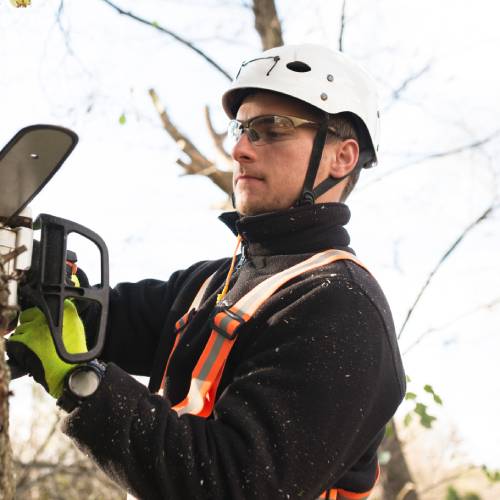









September and October have, traditionally, always been a good time for job hunting. Schools are back, summer holidays are over, and people have had plenty of time to re-consider their current position, especially if they’ve been lazing on a beach somewhere.
It goes without saying that the Coronavirus has had a major impact on the jobs market.
Almost 11.6 million jobs from approx. 1.3m UK employers suspended as many businesses were forced to close or slim down their operation.
From the initial national lockdown in March 2020 and the additional localised measures through to the autumn and beyond, staff were transferred on to the government’s job retention scheme (furlough) and, in some cases, even made redundant.
Furlough has now come to an end and when combined with the fall out effects of Brexit, and the future uncertainty of the Covid pandemic, there is no denying that the jobs market has changed dramatically in the last 18 months.
So, if you’ve recently returned to work and are now considering a new role elsewhere or are someone looking for first time employment, the question is, how is this affecting the current employment situation and how do you identify a job that’s right for you?
As the UK economy bounces back, businesses are now looking to recruit staff, either to fill vacancies or to enable them to expand as confidence grows in their sector.
According to the Office for National Statistics, there were 77,500 more jobs on offer between April and June 2021 than there were in the same period pre-Covid. This is reflected in the fact that we are now seeing the jobs market starting to open up and businesses re-commence hiring.
As we’ve said in previous blogs, the traditional ‘job for life’ is now a rarity. Anyone who started work in the mid-2000s will probably experience at least 10 different roles before they retire.
Also, especially over the last 18 months, there has been a massive expansion of the ‘gig economy’ with its myriad of short term contracts, freelance work and hybrid working. This is something that is likely to be the future way of working as we come to terms with the ‘new normal’.
In all cases, the prospective employer will produce a recruitment document that defines what they are looking for and contain all the ingredients needed to perform the job. This document provides a valuable insight into the advertised role and is usually divided into two parts.
Despite their importance in helping elaborate on the requirements needed to perform the job effectively, we find that many applicants spend little time interpreting their content and researching the job vacancy.
First. Let’s explain the difference between the two.
An employer will usually draft a job description first. This will give prospective candidates a feel for both the position and the company as it provides a wealth of information about the vacancy and what is expected from the applicant should they be appointed.
If it is an existing position, it will state the (previous) job title – e.g. Gas service engineer. If a newly created role, the job title may be more ambiguous. The remainder of the document will then go into more detail so make sure you read on. Also, with many vacancies now being posted on the internet, you may find job titles are ‘standardised’ thereby allowing them to be picked up by search engines.
A detailed job description should enable a prospective candidate to understand what type of person they are looking to attract, but not necessarily why. It will also avoid referencing any negative points – see later.
A fully detailed job description outlines the company’s expectations, such as targets, goals, and aspirations. It also helps provide a framework for the recruitment advert by providing a certainty of purpose. This enables candidates to be fully aware of what the job entails and what it involves.
The job description, therefore, will cover the responsibilities of the job. If an existing position, this may be a fairly standard response but if it’s a newly created role (say due to expansion or change in trading) it might be more fluid and flexible.
A 21st Century job description will also now feature details about the culture of the organisation. Many applicants are (rightly) concerned about their prospective employer’s eco-friendliness, working conditions (hybrid working) and management structure.
The job description will also give you a guide to remuneration and rewards. This might be a salary range and will include incentives and ‘perks’ such as social events, bonuses, birthday off etc. This should give candidates a good feel for how financially rewarding the position is.
By the time you’ve finished reading the job description, you should know what the job is (title), what it involves and who you report to (responsibilities) and what rewards you will receive for carrying out your duties (remuneration).
On the other hand, a job specification is a more succinct statement that defines the job criteria. This is almost a tick box exercise where you check off the necessary attributes to apply for the position.
This will include qualifications, skills, experience, educational standards etc. In most cases it will also include the required level of competence and / or amount of experience.
In addition, some employers will add additional criteria such as those considered necessary and / or desired. These can include physical requirements (heavy lifting / working at heights), professional qualifications, and previous experience (e.g. minimum 5 years on the job experience).
These will either be included in the job specification or, more likely, as part of a separate person specification.
One of the most important aspects of applying for a new job is interpreting the content of both the job description and job specification. However, it’s also a good idea to dig deeper and discover more about the role before you start the interview process.
As we said earlier, a job description will not usually include negative aspects, especially why there is a current vacancy. Is it a new position or replacing a member of staff who has left?
A good place for exploring is LinkedIn. This is a goldmine for information, such as company and employee profiles galore, and all with a story to tell. How long do people stay at the company, is the post vacant due to internal promotion or have they moved on, how long were they previously in the job and did they have the experience and / or qualifications you are being asked for?
All this information is freely available on social media platforms, and you can delve even deeper if you subscribe to LinkedIn Premium under the job section tab. By doing your research and comparing the content of the job description and job specification with the information gleaned from LinkedIn, you should be able to build up a clear picture of the role and whether you should submit your CV for consideration.
For further information on what it takes to identify the best jobs, contact us on 01709 820102 or enquiries@multitaskpersonnel.co.uk









